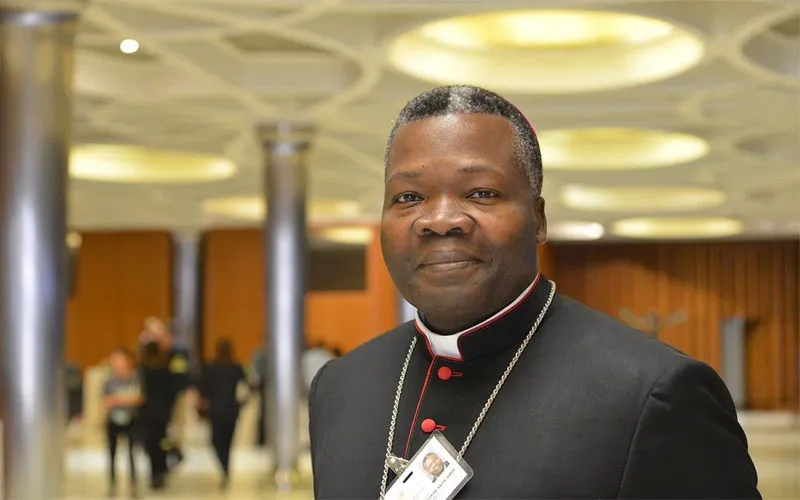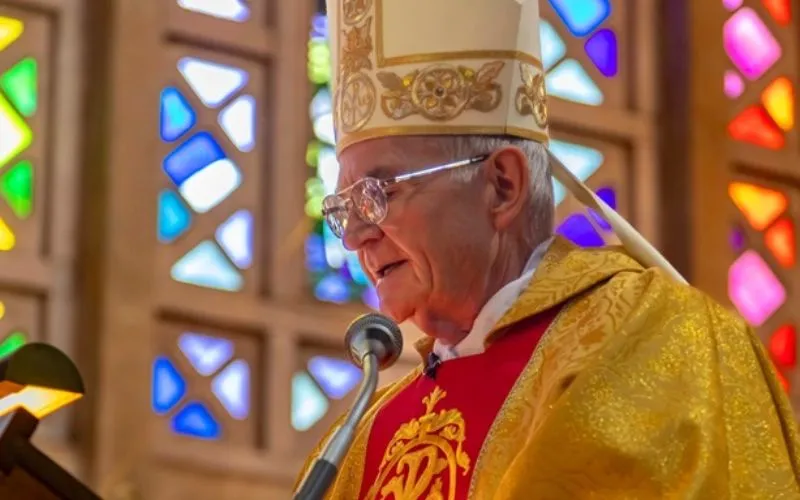The Archdiocese of Brazzaville was erected on 4 June 1886 as a Vicariate Apostolic of French Congo under the administration of a member of the Holy Ghost Fathers (Spiritans) before its name changed to Vicariate Apostolic of Brazzaville in June 1922.
Consecrated to the Sacred Heart of Jesus, the Metropolitan See that measures 14,450 square kilometres has an estimated population of 1,031,620 people, 56.9 percent of this population being Catholic, according to 2018 statistics.
Archbishop Bafouakouahou’s predecessor, 75-year-old Archbishop Milandou had been at the helm of Brazzaville Archdiocese since 2001. The Archbishop emeritus was first appointed Auxiliary Bishop of Brazzaville in July 1983 and ordained a month later aged 37.
Pope John Paul II appointed him Bishop of the Catholic Diocese of Kinkala in October 1987 where he served for fourteen years before he was transferred to the Archdiocese of Brazzaville.
Meanwhile, Bishop Alexis Aly Tagbino who has been serving as the Apostolic Administrator of Guinea’s Kankan Diocese since March this year has been appointed the Bishop of the same Episcopal See.
The appointment of the Guinean Bishop who started his Episcopal Ministry in February 2017 when he was ordained as Auxiliary Bishop of Kankan and assigned the titular see of Cuicul was made public by the Holy See Press office Saturday, November 20.
The 49-year-old Bishop succeeds Bishop Emmanuel Félémou who died in March this year after a long illness.
He was ordained a Priest of the Diocese of Kankan in March 2003. Before being appointed Auxiliary Bishop of Kankan, he served as a bursar and lecturer at Benedict XVI Inter-Diocesan Major Seminary in Kendoumayah in the Archdiocese of Conakry as well as the Chancellor of the Diocese.
Bishop Tagbino had also served as Vicar of the Parishes of Saints Peter and Paul and Our Lady of the Rosary of Guéckédou of Kankan Diocese.
Once he is installed as the Local Ordinary of Kankan, Bishop Tagbino will oversee the 118,000 square kilometer Guinean Diocese with a population of 78,700 Catholics, according to 2020 statistics.








